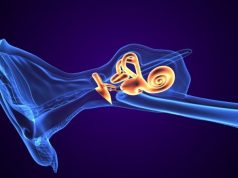Outcomes comparable after endolymphatic sac decompression for low-, high-risk Meniere disease patients
By Elana Gotkine HealthDay Reporter
THURSDAY, July 6, 2023 (HealthDay News) — For patients with Meniere disease, vascular risk factors have little effect on the efficacy of endolymphatic sac decompression (ESD) surgery, according to a study published online May 25 in the Frontiers of Neurology.
Yiling Li, from the Fifth School of Clinical Medicine in Hefei, China, and colleagues examined the effect of vascular risk factors on the outcomes of ESD surgery in a study involving 56 patients with Meniere disease. Based on the preoperative 10-year atherosclerotic cardiovascular diseases risk classification, patients’ vascular risk factors were assessed. The low-risk group included patients with no or low risk, while the high-risk group included those with medium, high, or very high risk.
The researchers found that 78.95 and 81.08 percent of patients from the low- and high-risk groups, respectively, demonstrated at least grade B vertigo control after ESD, with no statistically significant difference noted between the groups. In both groups, the postoperative functional disability scores were significantly lower than those before surgery, with a median decrease of 2 points in both groups.
“ESD may effectively reduce vertigo attacks and dysfunction in patients with Meniere disease, and its efficacy is not reduced by an increase in vascular risk factors,” the authors write. “The findings from this study may increase confidence regarding the use of ESD in patients with Meniere disease, thereby preventing unnecessary destructive surgeries.”
Copyright © 2023 HealthDay. All rights reserved.








